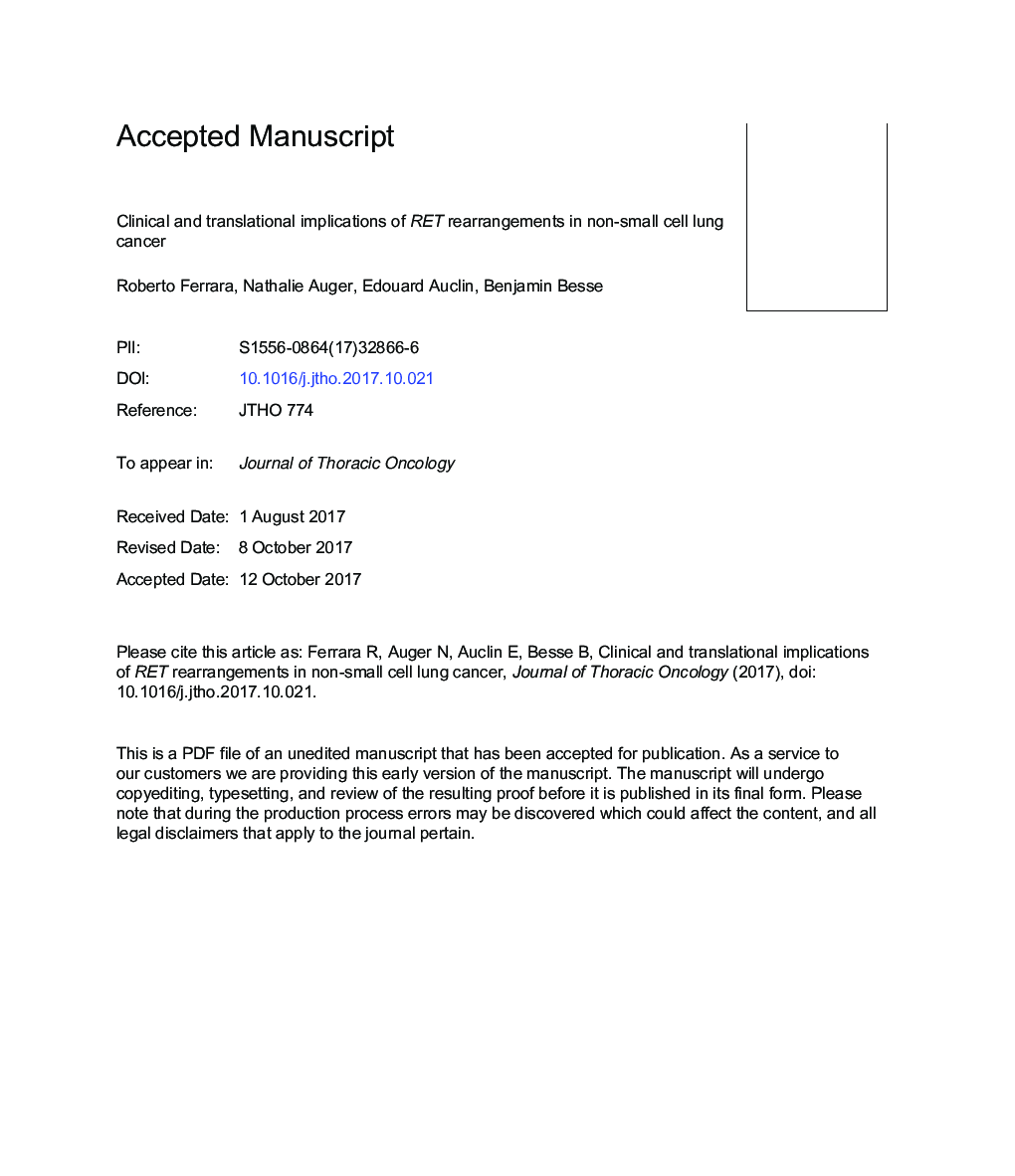| کد مقاله | کد نشریه | سال انتشار | مقاله انگلیسی | نسخه تمام متن |
|---|---|---|---|---|
| 8787857 | 1601646 | 2018 | 37 صفحه PDF | دانلود رایگان |
عنوان انگلیسی مقاله ISI
Clinical and Translational Implications of RET Rearrangements in Non-Small Cell Lung Cancer
دانلود مقاله + سفارش ترجمه
دانلود مقاله ISI انگلیسی
رایگان برای ایرانیان
موضوعات مرتبط
علوم پزشکی و سلامت
پزشکی و دندانپزشکی
تومور شناسی
پیش نمایش صفحه اول مقاله

چکیده انگلیسی
Since the discovery in 2012 of rearranged during transfection proto-oncogene gene (RET) rearrangements in NSCLC, at least 12 different fusion variants have been identified, with kinesin family member 5B gene (KIF5B)-RET being the most frequent and the best characterized. Unlike ALK receptor tyrosine kinase gene (ALK) and ROS1 rearrangements, RET fusion genes cannot be adequately detected by immunohistochemistry (IHC), although fluorescence in situ hybridization and reverse transcriptase polymerase chain reaction are fully complementary diagnostic tools. In large retrospective studies, RET rearrangements correlate with adenocarcinoma histologic subtype, never-smoking status, younger age, more advanced disease stage, potentially higher chemosensitivity (in particular, to pemetrexed-based regimens), and coexistence of other genomic alterations. To date, several preclinical models, clinical trials, and retrospective studies have investigated multitarget inhibitors with anti-rearranged during transfection proto-oncogene (RET) activity in patients with RET-rearranged lung cancer. In the clinical setting, the benefit in terms of response (16%-47%) and progression-free survival (2-7 months) is clearly not comparable to that seen with other targeted agents in oncogene-addicted NSCLC. Furthermore, multikinase agents showed high rates of severe toxicities, leading to frequent dose reduction and drug discontinuation. To date, no definitive conclusions about a potentially different impact of anti-RET therapies according to RET fusion variants have been drawn on account of discordant data coming mostly from small subgroup analyses. Importantly, the absence of a striking clinical benefit in RET oncogene-addicted NSCLC underscores the clear need for development of more selective and potent RET inhibitors and for better characterization of concomitant genomic alterations and mechanisms of resistance to RET inhibition in patients with lung cancer.
ناشر
Database: Elsevier - ScienceDirect (ساینس دایرکت)
Journal: Journal of Thoracic Oncology - Volume 13, Issue 1, January 2018, Pages 27-45
Journal: Journal of Thoracic Oncology - Volume 13, Issue 1, January 2018, Pages 27-45
نویسندگان
Roberto MD, Nathalie MD, Edouard MD, Benjamin MD, PhD,